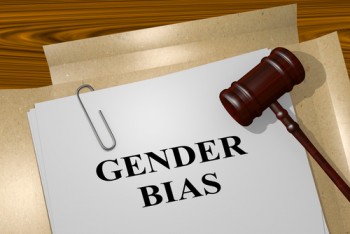Judiciary
Federal Judge Addresses Gender Representation in Class Counsel Leadership
March 25, 2025, 9:21 am CDT
Image Credit: Shutterstock
A recent order from the 11th U.S. Circuit Court of Appeals indicates that U.S. District Judge M. Casey Rodgers has responded to concerns regarding potential gender bias in her approach to selecting leadership roles for plaintiffs in the ongoing multidistrict litigation concerning the contraceptive drug, Depo-Provera.
Judge Rodgers previously emphasized the need for adequate female representation in leadership positions during a case management conference held on February 21. Subsequently, she reiterated this sentiment in a ruling issued on February 23. However, these statements prompted a formal complaint from conservative activist Mike Davis, the founder of the Article III Project, who contended that her comments suggested discrimination against male attorneys and constituted a breach of judicial conduct.
In response to the ensuing ethics inquiry, Judge Rodgers took steps to revise her initial statements. On February 28, she issued a new order eliminating any references to gender when soliciting applications for leadership roles, emphasizing that selection would be based on merit alone.
Furthermore, during a hearing on March 13, Judge Rodgers assured approximately 70 applicants that there would be no preferential treatment granted to women in order to avoid the appearance of discrimination based on sex. This move aimed to align her actions with judicial conduct rules that prohibit discrimination during the appointment of class counsel.
Chief Judge William H. Pryor Jr. commented on the situation, stating that Judge Rodgers had undertaken appropriate corrective actions that correctly addressed the concerns raised. He highlighted the necessity for judges to make selections for class counsel without regard to sex, citing a previous critique from U.S. Supreme Court Justice Samuel Alito regarding judges who impose requirements based on demographics.
Justice Alito had previously criticized a similar judicial requirement, labeling it as “unique.” Chief Judge Pryor noted that while this practice has been suggested as a ‘best practice’ in multidistrict litigation discussions, it must remain within the parameters of judicial ethics, which forbid any form of discrimination based on sex.
The implications of this case highlight ongoing discussions regarding gender representation and judicial practices, indicating a need for clarity in how judges approach diversity and composition when appointing leadership in class actions. Further professional commentary and reports have emerged from notable sources such as Law360 and Reuters, reinforcing the importance of adhering to established ethical guidelines.

